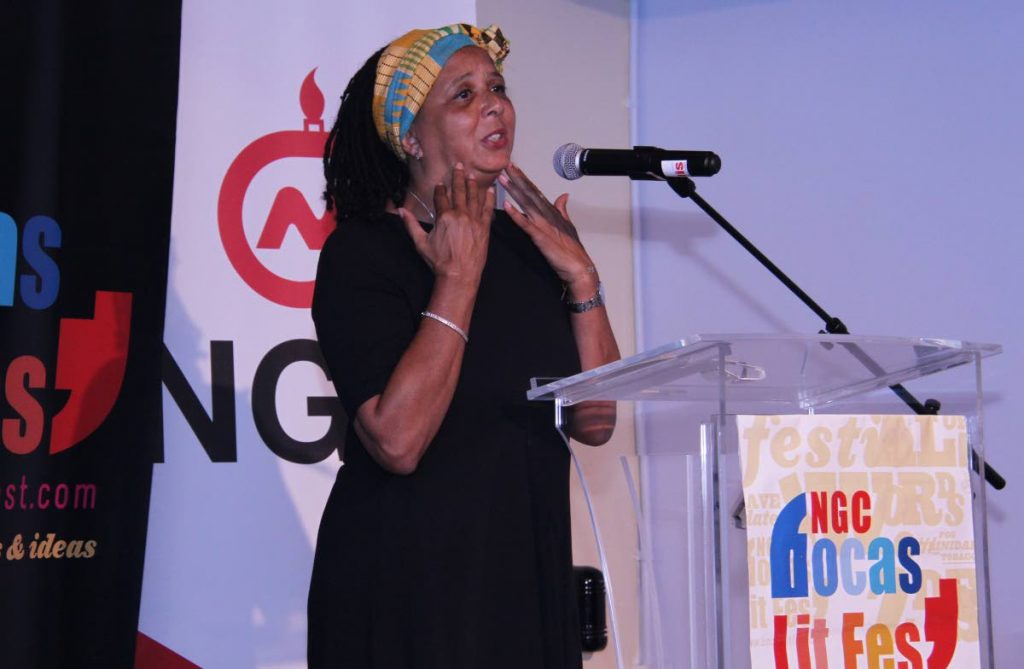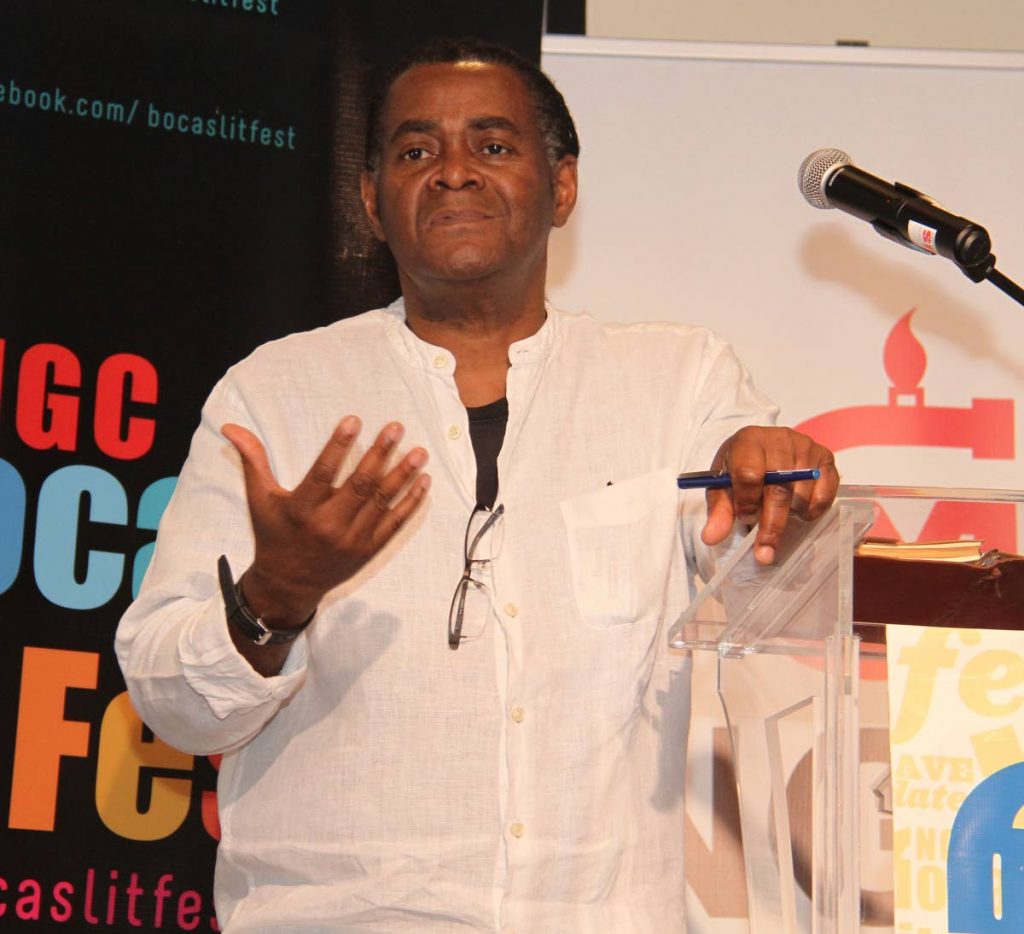Window open for Caribbean Literature

WHAT makes a good writer? Is it nurture? Or is it nature? Are you born with it or do you learn it? These questions along with what every fiction publisher is looking for were answered at the first of the Bocas Lit Fest’s free seminar on Wednesday.
The seminar was held on the lit fest’s opening day at the National Library’s AV Room, corner Hart and Abercromby Streets, Port of Spain.
The first presenter UK-based Grenadian writer Jacob Ross said there is now a window open for Caribbean writing in Europe and North America.
The window has been created by a range of factors, he said. While in the 1950s, Ross said, Caribbean writers were also making global waves, “now something is happening that is bringing that turning wheel, where Caribbean writers are becoming quite dominant and quite present.” He also questioned why the Caribbean could not have its own publishing infrastructure.
Ross, UK-based independent publisher Peepal Tree Press’ associate fiction editor and author, said the press receives about 150 to 200 manuscripts a year.

And a lot of time is spent running through the lists of manuscripts that come in. Submitting a manuscript, he told the audience of potential writers, does not mean that one’s book will be immediately published.
Ross described Peepal Tree Press as “quite unique” being one of the few developmental publishers around now in the English-speaking world. He added that as developmental publishers an author’s work is taken on board and reworked. While the author might have a brilliant idea, the book might need a lot of work and the press helps the author to do so.
Although some authors felt that publishing with a small independent publisher compromised their trajectory he described that as nonsense.
Ross said Peepal Tree Press was central to the Caribbean and Caribbean writing and has been for the past 25 years or so. He added that the opened window had also been possible because of the prestigious prizes being won by Caribbean authors such as Jamaica’s Marlon James.
“What is happening with Peepal Tree Press now is that all of the big prizes in poetry like the Forward Prize, all of the massive prizes, we have people who are shortlisted and sometimes winning these prizes.”
Publishers, he said, looked for authenticity of voice, fluency of language, integrity and honesty in the writing. He added publishers wanted writers to have a command of whatever language they wrote in whether it is Trinidad or Jamaican Creole.
Secondly, authors should not be apologetic about their language. “You don’t talk to others and try to explain your culture and the context. You write as if you are speaking to your own people,” Ross said.
An author should also be clear to what their genre is. Reading is also important to one becoming a writer, Ross said. As a young civilisation, he said the Caribbean is the one “saying interesting things. We are the ones being listened to now....because ours is a fresh, new, interesting dynamic growing civilisation.”
A writer, he added, needed to interrogate their own space.
“A sexy man or woman in the Caribbean is not the same as a sexy man or woman in England. The way Caribbean people love and express love is very different from the way somebody coming from another cultural space expresses love...the way we get vex is different...the way we get vengeful is different and you as a writer have to begin to observe.
“You have to mine your cultural reality and you have got to exploit that,” he said.
He said publishers want something that is different, fresh and interesting.
But central to the art of writing, Ross said, is being unafraid. “Taking risks, sometimes, Being brave. Writers who don’t give a toss about what others may think.”
While, he said again, the window was open for Caribbean writers now, delivering good work was essential.
While Ross spoke to what publishers looked for, Dr Mauli Amaye, University of the West Indies’ (UWI) co-ordinator of its MFA Creative Writing Programme, spoke to whethr writers were born or made.
She began her discussion by asking, “Can everybody write? Well if you’re taught to put your letters together and your ABCs at school, yes everybody can write.”
But she said not everybody has the talent for producing stories or poetry.
Amaye said while people can learn some of the things needed to put together a decent story but that does not necessarily mean that they are going to produce good writing “because not all of us do.”
She said a good starting place for people who have talent and want to write, is a writing workshop.
A budding writer can go through workshops at either the university or the community.
She said at the university writing was looked at in a very different way, where it is analysed, how writing is put together is looked at and what works and what is also looked at.
“What was going on socially the time this is written and who are these characters? Do I want know more about them,” Amaye asked.
She said if one comes into a university programme to undertake writing that is what one would do with their own work.
She said everybody who wants to write should go to a writing workshop and somebody who wants to develop their writing to a stage where they understand what has to go into something to produce something that is readable. Like Ross, she stressed the importance of writing in one’s own voice which is also said to be writing with integrity.
The workshop looks at characterisation, voice, setting, language, all of the different parts of writing. She added that the workshops would also teach its participants to read.
While, she said, TT is full of talent, “but not everybody can write.”

Comments
"Window open for Caribbean Literature"